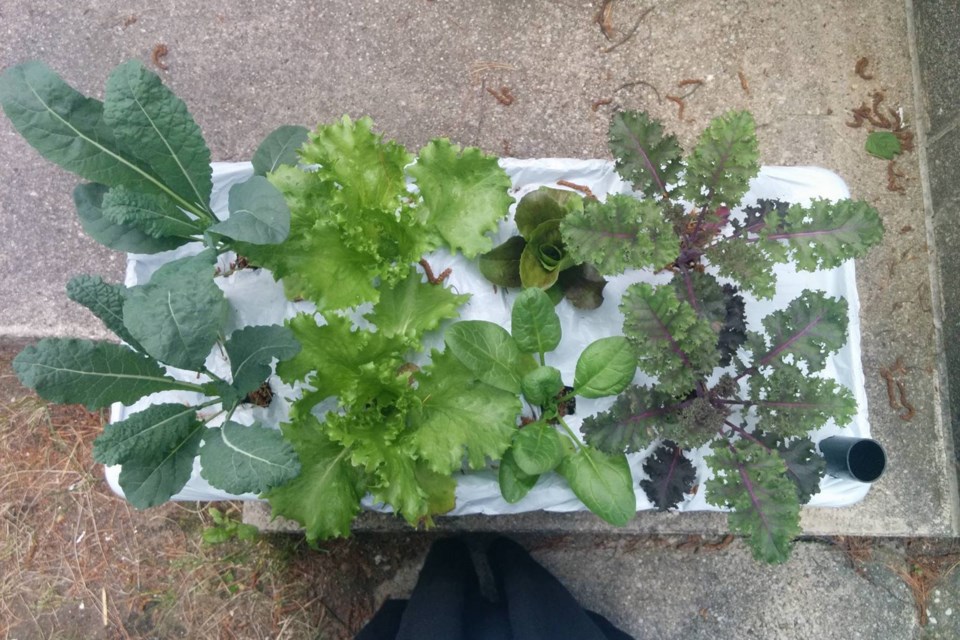A local organization is planting more seeds in the hopes of growing food security and confident new gardeners in Collingwood.
In Collingwood, that means there will be more personal and community gardens coming to parks, lawns, and porches in the community.
Catulpa Community Support Services Community Action Program for Children (CAPC) is set to launch its annual Caja gardening project next month.
The project, which kickstarted in Collingwood four years ago, provides women and children who are deemed at-risk for food insecurity with a Caja — a super-efficient portable gardening container. The Caja allows even the most ill-equipped gardeners to experience the joy of fresh and healthy produce.
Thanks to a grant through the Local Food Infrastructure Fund of the Minister of Agriculture and Agri-Food of Canada, this year the project is expanding to include over 200 vulnerable families and other community groups, such as women’s shelters, Indigenous centres, retirement homes, social housing communities and food banks, across Simcoe County.
“It is more important than ever for people, especially for those people living in poverty, to be able to grow their own produce at home,” said Lauren Jeffrey, the CAPC site co-ordinator for Collingwood and Wasaga Beach. “It is more sustainable, more economical, and includes that learning aspect.”
Through the Caja project, participating mothers receive their own garden container, and with the help of their children, they grow their own vegetables and herbs over the course of the summer.
Prior to the COVID-19 pandemic, CAPC would touch base with the mothers on a weekly basis, providing the women with a physical space to swap resources and recipes and support each other through the process.
“It really has a sense of community because they could share their growth. Gardening [has] so many social, wellbeing and recreational benefits,” said Jeffrey.
This year, the program is moving its support online.
On June 1, CAPC will host a virtual planting workshop, and the following two days mothers across the county will receive their gardening boxes. Weekly planting and discussion sessions, along with Q&As, recipe suggestions, and troubleshooting, will continue to occur through CAPC’s Facebook page.
The program is also designed to get children involved, with each family being provided with a little gardening kit for kids as well.
“We’re hoping to teach the moms that you don’t have to get it perfect right away, you learn as you go,” said Jeffrey. “We have the opportunity to really expand and pull in all these virtual tools to keep moms engaged and supported.”
“Also, introducing and engaging children into gardening at such a young age, especially when you are living in poverty, is so important to set them up for a lifetime of well-being and health,” she continued.
Along with this initiative, CAPC announced a new community garden project in partnership with the Town of Collingwood, Free Spirit Gardens and the Environment Network (EN). Community gardens were deemed essential by the provincial government and are now permitted during the pandemic in Ontario.
Tomorrow (May 22), while upholding physical distancing standards, Jeffrey and Rebecca Toth from CAPC, Kerri McDonald from the EN and Jennifer Parker from the Town of Collingwood will begin planting the new 10-bed community garden at Heritage Park.
“It's a beautiful fact that the government has deemed community gardens of essential importance in this time, so we have all the right things in place to continue,” said Jeffrey.
The garden will be available to mothers and vulnerable families living in the county-owned apartments on Third Street. Along with a food garden, the community green space will also feature a pollinator garden with native plant species.
“It’s about accessibility and education. Having that farm-to-table concept right there at your home or in your community, knowing that it’s available to you,” said Jeffrey.
For more information about Catulpa services, including the Caja garden program, visit their website here.



